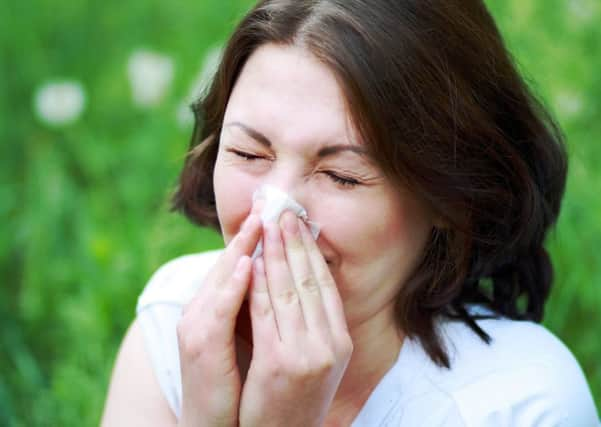Column: Having hay fever doesn't mean the end of your summer


To coincide with the start of the hay fever season, here are a few simple tips to help sufferers reduce their symptoms.
Although staying inside will help to reduce symptoms, this isn’t a practical or appealing option for most people during the summer.
Advertisement
Hide AdAdvertisement
Hide AdHowever, a few simple tricks can help to minimise the amount of pollen that comes into contact with your eyes .
Wearing wraparound glasses or sunglasses will help keep pollen away from your eyes and if you have a fringe, keep it off your face
The hay fever season usually begins around mid-March with tree pollen blooming until May.
However, this year the pollen season has been delayed by cold weather, meaning that trees are likely to release their pollen at the same time and cause a sudden spike in hay fever symptoms.
Advertisement
Hide AdAdvertisement
Hide AdThe number one rule for hay fever sufferers is to never rub or scratch your eyes as this will only aggravate the allergic reaction further.
You also don’t want to be caught out on the day you start to suffer.
Stock up now on your usual eye drops if you know that your eyes are sensitive to pollen.
If you’ve suffered from hay fever for years and have a good idea of when it is likely to kick in, you can begin to use eye drops a couple of weeks in advance.
Advertisement
Hide AdAdvertisement
Hide AdInflam-mation caused by airborne pollens can considerably be reduced by doing this.
It’s important to point out that you shouldn’t use eye drops while wearing soft contact lenses unless they are specifically formulated for that purpose.
If you have any doubt about which drops are suitable then speak to your optician.